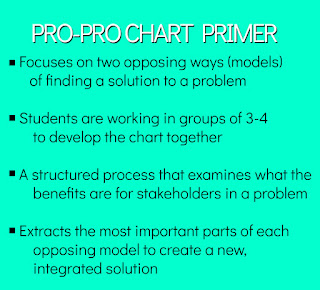Put On Your Own Oxygen Mask First

“Put On Your Own Oxygen Mask First.” You have probably heard that line before. The idea is simple: you are better able to help other people if you take the time to make sure you stay alive first!
As we have all experienced a dramatic impact on our daily lives, this serves as an important time to reflect on this lesson. If you are interested in helping out other people, it is crucial that you are well enough yourself to do so. This week we are reflecting on the importance of building resilience at this time - with a keen interest of making sure we focus on our own well-being first and foremost.
Many of us are facing daily challenges of our own while also wanting to help our families, communities, and students. There has never been a greater time to put the importance of well-being into perspective in its role in education.
There is a good listen just released this week on the NPR radio show “How I Built This” featuring a conversation with Christina Tosi - owner of Milk Bar. Her segment is about 15 minutes and worth a listen. If you are new to the podcast - it’s a great show.
The gist is this - as an entrepreneur, Tosi was thrust into a multitude of problems when the pandemic broke. One of these problems was looking out for her staff. Like many other businesses, she had to make the hard call of furloughing employees. While it is really hard to tell someone they can’t come to work, she recognized that the long term picture is that it is better if her employees have a job to come back to at all. Protect the health of the business, so that she can eventually help the employees.
Then the story gets more interesting. As a maker of cookies, Tosi also recognizes the other value of her business. In these hard times, people are still looking for ways to connect, to celebrate, to honour, and to thank each other. The symbolic and physical idea of a cookie says a lot. In order to be viable, to be able to make cookies, to serve communities, to offer this service - the company has to first survive.
“If we want to look out for our students, our communities and our families - we need to ensure that we are healthy enough ourselves to do so.”
If we want to look out for our students, our communities and our families - we need to ensure that we are healthy enough ourselves to do so. Once we can build routines and habits for our own well-being, we can begin to look at the value we have to offer others. We can begin to ask how we might best serve our students, and serve our communities.

Dr. Jean Clinton, a Clinical Professor in the Department of Psychiatry and Behavioural Neurosciences at McMaster, division of Child Psychiatry, explores this idea extensively in her own work. Dr. Clinton’s studies have explored and expanded on the role that well-being plays in managing stress. Further, Dr. Clinton is able to articulate how managing that stress allows us to better manage our own feelings and the resulting actions.
Dr. Clinton will be joining the HDSB SHIFT Pop Up Meet series for a discussion on well-being and resilience with a focus on the role of taking care of yourself.
If you are interested in learning more and having a discussion with colleagues about well-being in this climate, please join us next Tuesday, May 12th from 4-4:45 PM for our next ShiftPopUpMeet with Dr. Jean Clinton. The last session filled up in a few hours, so don’t miss out!

Dr. Jean Clinton is a Clinical Professor, Department of Psychiatry and Behavioural Neurosciences at McMaster, division of Child Psychiatry. She is on staff at McMaster Children’s Hospital with cross appointments in Pediatrics and Family Medicine, and an Associate in the Department of Child Psychiatry, University of Toronto and Sick Children’s Hospital. She has been a consultant to children and youth mental health programs, child welfare, and primary care for over 30 years. Dr. Clinton was appointed as an education advisor to the Premier of Ontario and the Minister of Education 2014 - 2018. Dr. Clinton is renowned nationally and internationally as an advocate for children’s issues. Her special interest lies in brain development, and the crucial role relationships and connectedness play therein. Jean champions the development of a national, comprehensive child well-being strategy including a system of early learning and care for all young children and their families. She is equally committed to ensuring that children’s and youths’ needs and voices are heard and respected.

Comments
Post a Comment